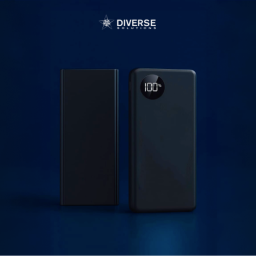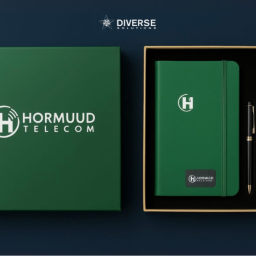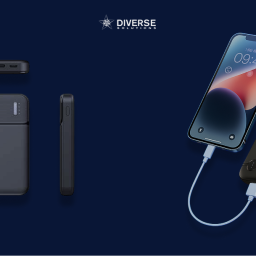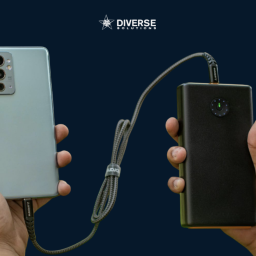
Corporate gifting is a common practice in the business world, used to recognize employees, show appreciation to clients, or strengthen business relationships.
And while cash might seem like the most straightforward option, is it truly the best gift to give?
Here, we’ll explore the pros and cons of giving cash as a corporate gift, review insights from experts, and look at some creative alternatives that might make a more memorable impact.
The Case for Cash
Cash as a corporate gift has its advantages, and many companies prefer it for good reasons.
Here are some points supporting the use of cash as a corporate gift:
Flexibility and convenience
Cash offers unmatched flexibility since recipients can spend it as they see fit.
According to a survey by the Incentive Research Foundation, 71% of employees prefer cash because it gives them freedom of choice.
Whether it’s bills, saving for a bigger purchase, or using it for personal enjoyment, cash caters to individual needs, making it highly versatile.
Universal appeal
Cash is universally accepted and appreciated.
Unlike other gifts, which might vary in appeal, cash doesn’t require personalization to ensure it’s well-received.
In a diverse workplace, where preferences differ, cash avoids the guesswork of picking the “right” gift, ensuring no one feels left out.
Ease of distribution
Cash gifts are easy to organize and distribute, especially in large organizations.
This makes it a practical choice for companies looking to gift a significant number of people with minimal logistical effort.
Unlike material gifts, cash doesn’t need to be sourced, wrapped, or delivered, which streamlines the process.
Recognition of effort
For employees, cash can represent tangible recognition of their work and contributions.
Research from Harvard Business Review suggests that financial incentives, such as bonuses or cash gifts, can serve as a motivating factor by showing employees that their efforts are valued.

The Case Against Cash
While cash may seem like the easiest option, it doesn’t always achieve the intended results.
There are several reasons why cash may not be the best choice for a corporate gift:
Lack of personal touch
Cash, though practical, is impersonal.
Gift-giving is a chance to connect with the recipient on a deeper level, showing thoughtfulness and appreciation.
A survey by Forbes indicates that 83% of employees value gifts that reflect thoughtfulness over simple monetary value.
A meaningful gift creates a connection that cash alone may not provide.
One-time utility
Once spent, cash is often quickly forgotten.
Unlike a personalized gift that can serve as a lasting reminder of a positive experience or achievement, cash lacks sentimental value.
This means that recipients are less likely to associate the cash gift with the giver, which can undermine the goal of strengthening the business relationship.
Potential misinterpretation
Depending on the company culture, cash gifts can be misinterpreted.
Some employees might see cash as a replacement for more thoughtful recognition or feel that the company is using cash to “buy” loyalty.
This approach might not align with companies that value long-term relationships and personal connections with employees or clients.
Tax implications
In certain regions, cash gifts are taxable, which could reduce the actual amount an employee receives.
This can diminish the value of the gift and, in some cases, lead to employee dissatisfaction when tax deductions reduce the total gift amount.
The Expert Perspective
Experts in corporate culture and gift-giving have weighed in on the cash-gifting debate, with some surprising insights.
Studies reveal that cash might not always yield the intended emotional impact compared to other thoughtful gifts.
Experts in workplace engagement often emphasize the importance of creating positive experiences through gifts that align with a company’s values and brand message.
Daniel Pink, author of Drive, suggests that non-monetary gifts tend to make a stronger emotional impact.
According to Pink, when companies show thoughtfulness in choosing gifts, employees often feel more valued than they would with cash alone.
Catherine Stantus, an HR expert, echoes this sentiment.
She notes that gifts should create a “memory of appreciation” rather than act as a monetary transaction, which is what makes items like awards, customized merchandise, or meaningful gestures more impactful over time.
While cash has a role in rewarding performance, these experts suggest that blending it with other meaningful tokens or experiences can create a more holistic gift experience.
Alternative Gifting Ideas

If cash isn’t the best fit, what are some alternatives? Here are a few unique and thoughtful ideas that companies can consider for their corporate gifting strategy:
Experiential gifts
Offering experiences, such as tickets to events, cooking classes, or travel vouchers, can create lasting memories.
Experiences are often valued more than material gifts because they offer a chance to unwind or explore new interests.
Customized merchandise
High-quality branded merchandise, such as backpacks, tech gadgets, or apparel, adds a personal touch.
Items that are useful in daily life, like a branded water bottle or a tech accessory, serve as ongoing reminders of the company’s appreciation.
Gift cards with choice
Gift cards from popular retailers, online platforms, or restaurants provide flexibility while maintaining some structure.
These gifts often feel more personal than cash and can be tailored to individual preferences without the tax implications cash gifts may carry.
Charitable donations
Some companies allow employees to donate a portion of their gift value to a charity of their choice.
This approach resonates with socially conscious employees and demonstrates the company’s commitment to giving back.
Health and wellness packages
Wellness-focused gifts like gym memberships, yoga classes, or wellness kits reflect care for the recipient’s well-being.
This can be particularly meaningful in industries where mental and physical wellness is prioritized.
Final Thoughts
Cash gifts have their advantages, especially in terms of flexibility and ease of use, but they may lack the personal connection and impact that other gifts offer.
While cash can be appropriate in some circumstances, blending it with experiential gifts or thoughtful gestures can create a more memorable and positive experience for the recipient.
When considering corporate gifts, companies should take the time to understand the recipient’s needs, the company’s culture, and the occasion.
By doing so, they can choose a gift that not only shows appreciation but also reinforces a lasting connection.
For more insights on corporate gifting strategies and to explore a wide range of customizable eco-friendly options, visit Diverse Solutions.
















